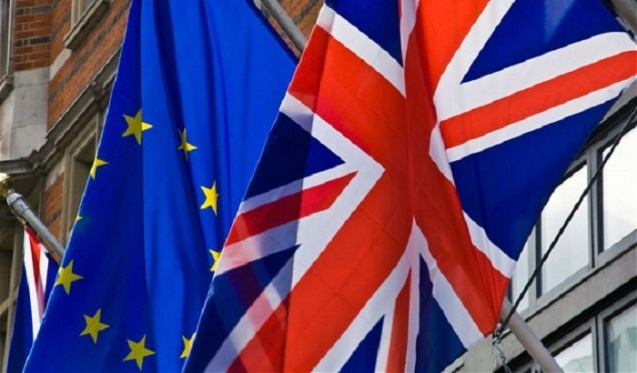The chances of the UK and EU changing their post-Brexit relationship are slim, a new report has found.
Published on Tuesday, the report by UK In a Changing Europe (UKICE) said that despite Britain taking a significant economic hit from leaving the bloc and falling public support for Brexit, major changes in the UK-EU relationship were unlikely.
But it did mention the possibility of sector-specific deals for financial services, fisheries and energy necessary to prevent more disruption.
“Prospects of such a renegotiation are slim,” UKICE Director Anand Menon said.
Polling by UKICE in December showed 56% of Britons said they would vote to rejoin the EU, up from 45% in February — a result largely consistent with other polls.
However, Britain’s governing Conservative Party has doubled down on Brexit, while the opposition Labour Party is keen to avoid suggestions it would unravel the post-2016 settlement, fearing a loss of support in Brexit-voting areas.
Talks between London and Brussels on implementing Brexit continue nearly three years after the UK left the bloc, with the final outcome still being shaped.
A particular flashpoint is how to manage the largely open border between Northern Ireland, which is part of the United Kingdom, and EU member state Ireland.
“The immediate challenge is resolving the issues surrounding the Northern Ireland Protocol but even if this is achieved other deadlines and decisions are looming,” relating to data exchange, electric cars and fish, among other things, the report said.
UK-EU relations were “far from either settled or stable”, said UKICE. But it noted neither side seemed likely to want to reassess the Trade and Cooperation Agreement (TCA) signed in December 2020 after more than four years of political argument.
“There appears to be little political space on either side of the Channel for a major reconsideration of the relationship or renegotiation,” it said, citing a lack of trust, UK politics and the benefits of the current arrangement to EU exporters.
“Changes to the relationship are likely to be slow and incremental in the immediate future,” it said, suggesting that scientific research, energy security and emissions trading might be areas where the current relationship could be deepened.
The effects of the UK’s exit from the European Union have been far-reaching, impacting business and the economy, as well as people on both sides of the English Channel.
While it is difficult to disentangle the economic impact of Brexit from COVID, the Ukraine War, and the energy crisis, there is a near consensus among economists it has made them worse.
The UK economy has underperformed compared to its European neighbours since the pandemic.__Courtesy EuroNews





